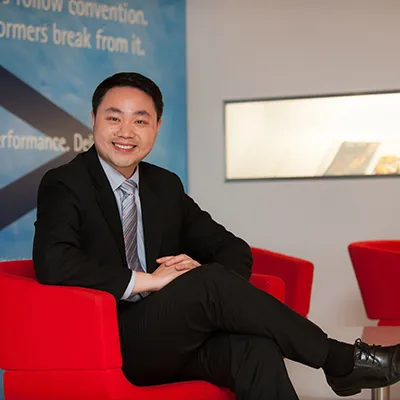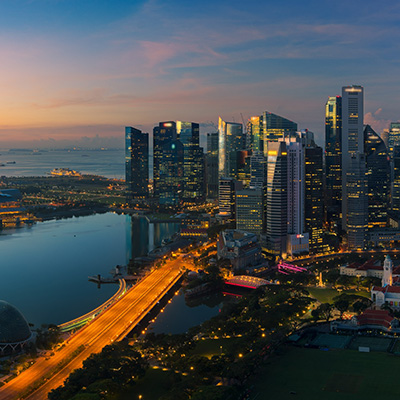REMOTE work has brought an interesting shift in the flow of tech talent globally.
Skilled and entrepreneurial people, particularly those who want to be in the tech scene, are no longer limited to a particular city or region. Singapore's tech ecosystem is thus "in a good position in terms of mindset to take advantage of this," said Tan Yinglan, managing partner of Insignia Ventures Partners.
The city-state has a unique opportunity to look beyond its borders to unlock further growth, as more tech companies and investors move into a post-pandemic remote future. The digital age could present more opportunities - in terms of talent and capital - for the ecosystem here, observers said.
For years, geographical proximity was cited as one important reason for the proliferation of startups in Silicon Valley.
Sand Hill Road, which leads into Stanford University, is particularly known for housing Silicon Valley's venture capital (VC) elite. But the Valley's grip on how startups find investors might have broken down in the Covid-19 era.
The "20-minute rule" some investors there have long believed in - where startups seeking funding need to be within a short drive of their offices - seems obsolete now that investors have spent more than a year making deals via online conferencing tools.
Despite that, Singapore Management University (SMU) still sees value in fostering the city-state's own version of Sand Hill Road. The university has developed several Innovation and Entrepreneurship (I&E) training programmes, as well as organised events in hopes of stimulating interaction in the startup scene in Singapore.
One of its initiatives is its university incubator - known as the Business Innovations Generator (BIG). Startups in the BIG incubator programme can also use its coworking space, The Greenhouse, which SMU said serves as a neutral, non-profit convening platform to "galvanise the VCs, government offices, family offices and startups in the downtown district".
"MIT and Stanford are the undisputed cradles to world-class startups because the investors and corporate executives walk to the campuses every day from their offices nearby," an SMU spokesperson said.
While a physical location within the nexus of VC offices could help facilitate opportunities for dealmaking, industry observers said having stakeholders close by is no longer crucial for collaboration in this digital age - especially in a small city like Singapore.
And although the VCs have tended to congregate in Singapore's central business district - close to where SMU is located - their location has more likely been a happy coincidence brought about by the city-state's growing tech ecosystem.
Observers point to strong government support, the ease of doing business here, political stability, and proximity to the Asean region as solid pull factors.
Venture capital investors are drawn to Singapore because in addition to being a key financial centre in South-east Asia, it is also a beacon of stability where intellectual property is protected through effective rule of law, said Balagopal Vissa, professor of entrepreneurship at Insead. He added that the government is also "actively trying to place the city in the global map as a centre for innovation and entrepreneurship".
Compared to Silicon Valley and Sand Hill road, Singapore's evolution as a tech ecosystem was more "government-driven", said Insignia's Mr Tan, an alumnus of Stanford University and a former venture partner at global VC firm Sequoia Capital.
In the late 2000s, the Singapore government started co-investing with potential VCs through the likes of the National Research Foundation. Then, it invested heavily into tech and R&D talent building.
The government also set up channels through universities, such as the National University of Singapore's Overseas College (NOC) programme, to provide space for founders to build companies. This eventually led to several members founding startups of their own, said Mr Tan.
Some early and well-known founders in Singapore - among them PatSnap's Jeffrey Tiong, 99.co's Darius Cheung and Carousell's Quek Siu Rui - were part of this programme.
Many founders from NOC then set up shop in Block 71, the university's nearby incubation hub in the one-north district. Block 71 is still referred to with some nostalgia as the place where Singapore's startup scene started, but as startups got bigger, they moved out.
Most of the larger startups in the city-state also have a regional presence. An increasing number take in a huge part of their revenue from outside the country.
Location wasn't a big deal, but government support was. Combined with Singapore's regulatory safety and ease of doing business relative to other Asean nations, especially in the early 2000s, the city-state became an "attractive destination for investors interested not just here but also in the region," said Mr Tan.
With Covid-19 having warmed startups and investors to the idea of tapping talent from around the world, some observers say Singapore has an even better chance of becoming a global startup hub.
"The key for Singapore is to double down on this mindset of global from day one," said Mr Tan, adding that Singapore should continue to look to comparable ecosystems globally as its baseline. "It is far better to compete with the giants than fall behind not doing so."
Tech startups here can also take advantage of the increased acceptance of doing deals online amid the pandemic.
"Venture firms in the US are increasingly looking at Singapore and the Asean region to invest, and more growth-stage deals are being done online," said Jonathan Pentzien, who specialises in cross-border venture deals and is managing partner for the Singapore office of Silicon Valley-based law firm Gunderson Dettmer. "This can become the norm."
There are still merits to having a clear physical destination for tech talent and capital to congregate, of course. And Singapore's interconnectedness within the Asean region continues to bolster its strength as a tech ecosystem.
"Innovation is a team sport and startups cannot do it alone," said Chua Kee Lock, chief executive of Vertex Holdings. "They need the support of a whole community of lawyers, government agencies, research institutes and investors, among others. Opportunities like this can bring the startup community closer, and help ideas flourish."
© 2021 Singapore Press Holdings
This article was written by Olivia Poh from The Singapore Business Times and was legally licensed through the Industry Dive publisher network. Please direct all licensing questions to legal@industrydive.com.







